Meet the organisations that are on a mission to promote social development and human dignity
On the 14th World Day of Social Justice, SocialStory rounds up NGOs and businesses that recognise the need to promote social justice, and are focusing on issues such as poverty, exclusion, gender inequality, unemployment, human rights, and social protection.
Since 2009, World Day for Social Justice has been celebrated across the world as a way to promote fairness and equity, and work to guarantee fair outcomes for all through employment, social protection, social dialogue, and fundamental principles and rights at work.
Also known as Social Justice Equality Day, the celebration recognises the need to promote social justice, which includes efforts to tackle issues such as poverty, exclusion, gender inequality, unemployment, human rights, and social protection.
The theme of the celebration this year is ‘Achieving Social Justice through Formal Employment’, focusing on the formalisation of employment as a prerequisite for reducing poverty and inequality. The event will be held virtually.
More than 60 per cent of the world’s employed population – two billion women, men and youth - earn their livelihoods in the informal economy.
“Promoting the transition to formality is a necessary condition to reduce poverty and inequalities, advance decent work, increase productivity and sustainability of enterprises and expand government’s scope of action, notably in times of crisis,” according to the UN.
On the 14th World Day of Social Justice, SocialStory rounds up NGOs and businesses that recognise the need to promote social justice, and are taking on huge problems to help do that.
Ashoka
International non-profit organisation, Ashoka, founded by Bill Drayton in 1980, is based on the idea that the most powerful force for good in the world is a social entrepreneur.
Today, Ashoka claims to be a network of 4,000 social entrepreneurs (Ashoka Fellows) from more than 92 countries, who are working to provide system-changing solutions to the most pressing social, environmental, and cultural issues. They are people committed to the good of all and so is their work.
Around two-third of Ashoka Fellows claim to have changed national policies in their countries within the first five years since the inception of their innovative solution.
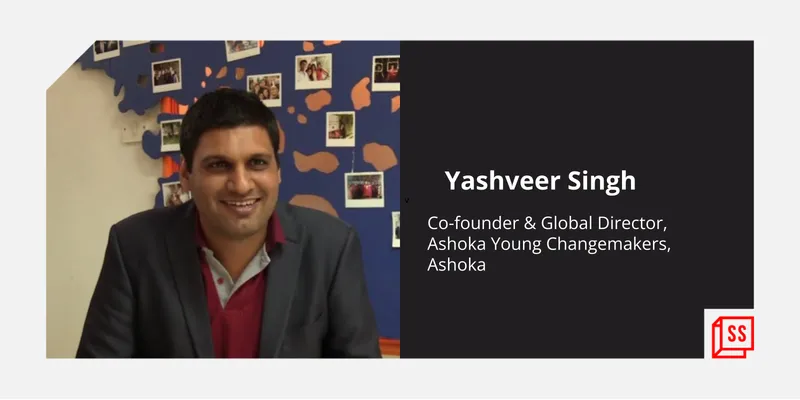
The organisation is based out of Bengaluru in India. Fellows include Nobel Laureates Kailash Satyarthi (Bachpan Bachao Andolan) and Magsaysay Awardee Anshu Gupta (Goonj), among several others impacting millions of people and communities through their work.
Currently, Ashoka Fellows belong to fields such as farming, education, human rights, finance, local media, and women and youth empowerment.
The non-profit is leading the way to build an ‘Everyone a Changemaker’ (EACH) world. It applies insights from social entrepreneurs to set in motion profound societal transformation.
“Our rapidly-changing world calls for an EACH world, one where every person practises the critical skills of empathy, teamwork, leadership, and changemaking. In today’s change-driven and increasingly complex, interconnected world, we believe anyone can create positive change. Everyone needs to be empowered to realise their power to bring change to thrive,” says Yashveer Singh, Co-founder and Global Director, Ashoka Young Changemakers, Ashoka.
The Ashoka Young Changemakers programme was launched in 2018 to identify, select, and build a global community of teen changemakers.
“By identifying and selecting inspiring teen changemakers as Ashoka Young Changemakers, we are working towards reimagining how young people are growing up and creating a new type of role model for children and youth who have the potential to impact an entire generation to aspire to become changemakers,” Yashveer says.
Lythouse
Gurugram-based Lythouse aims to become a data-driven safety-tech ecosystem that records the safety ratings of cities and places, as marked by residents/visitors to the region. This flagship product from DROR is based on democratising safety data by crowd-sourcing safety information.
Launched in 2021, the gamified social safety app, available for Android and iOS users, is solving the problem of fear and uncertainty pertaining to day-to-day personal and enterprise-level safety.
It collects user-generated granular data such as safety ratings, audio and visual content for each location along with AI/ML-driven media reports and generating safety insights for users.
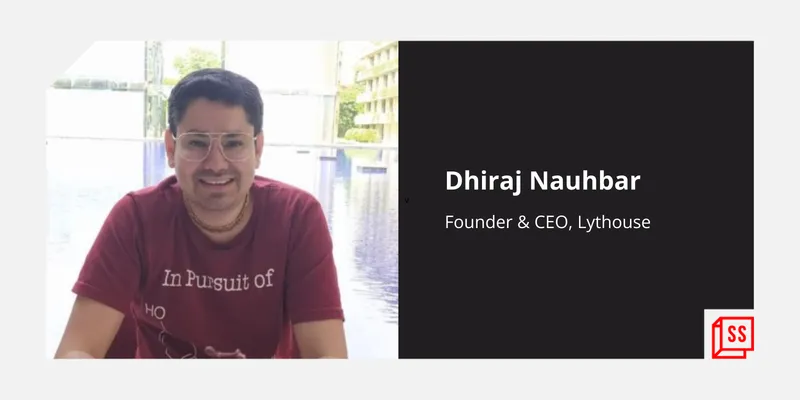
Every safety issue, ranging from a small pothole to murder, is reported on Lythouse so people are made aware of the safety situation around them.
“Solving for SOS is not preventing crimes in India nor is Indian Penal Code preventing it. The solution lies in creating preventive mechanisms. Citizens have to now step up and help law enforcement without taking law into their own hands - this is the power of Web 3.0. We decentralise safety data by getting first-hand information from citizens and communicating to relevant users,” says Founder and CEO Dhiraj Nauhbar.
Since October 2021, Lythouse claims to hit a new milestone with over four million safety ratings being reported on the platform and more than 150,000 videos being shared by over 200,000 registered users.
Clean Up Foundation
This non-profit organisation, founded in 2016 by 17-year-old Sanjana Runwal, aims to bring positive change in the lives of garbage cleaners and ragpickers of Mumbai.
It has been taking steps in this direction through activities such as the provision of clean drinking water for garbage cleaners, healthy meals, providing safety gear for ragpickers, education assistance for ragpickers’ children, providing medical insurance, and many more.
The Mumbai-based charity is now working on the possibility of providing housing facilities for this segment.
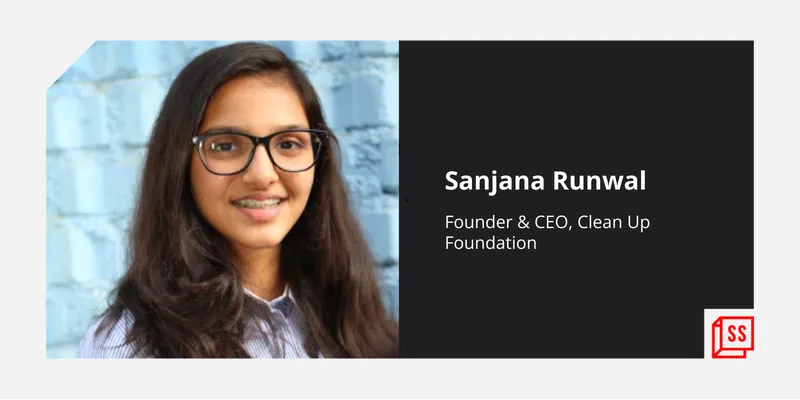
Sanjana, Founder and CEO, Clean Up Foundation, says,
“Ragpickers are the most neglected community in our country; nobody acknowledges them. I want to bring a positive change in their lives. They are human beings like us but are unfortunately ignored. They deserve much better. Providing health, safety, hygiene, and education assistance to them is a small step in this direction. I am doing whatever little I can do to improve their lives and would like to request others to help me do this.”
Clean Up Foundation claims to have donated several water purifiers that have been installed across Bandra, Khar, and Santacruz, ensuring clean drinking water availability for over 12,000 garbage cleaners in Mumbai.
“The foundation is planning to carry out many more such activities at multiple locations in Mumbai to help the true heroes of our city - the garbage cleaners and ragpickers,” Sanjana says.
Bal Utsav
Bengaluru-based NGO Bal Utsav, founded by Binu Verma and Ramesh Balasundaram in 2009, aims to empower children and provide them with a better future.
Over the years, it has developed many programmes for children to learn key concepts and created ‘bridge schools’ for those forced to drop out of school due to difficult circumstances.
The NGO started adopting government schools in Karnataka to bring about holistic reformation. This was executed through their flagship programmes, Sampoorna Shaala and iShaala. Both include focused and sustainable investments in the areas of infrastructure, teacher development, scholarship, water, sanitation, and hygiene in government schools.
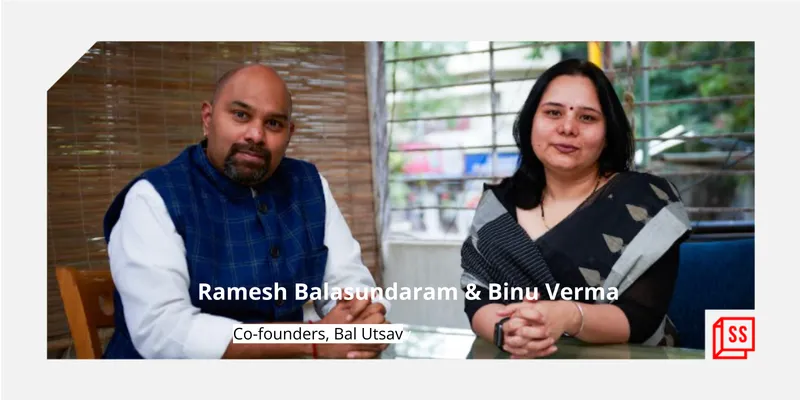
Amid the pandemic, the organisation brought technology intervention in government schools to ensure continuity of education for children, especially those in the hinterlands.
Binu Verma, Co-founder and Director, Bal Utsav, says,
“Bal Utsav chose to work with children who are the agents for change and our hope for a better tomorrow. We believe that if each one of us can take it upon ourselves to educate a child, we can ensure the next generation is gifted with a stronger and vibrant India.
"The models we have been working on were conceptualised with an aim to replicate and scale up. This model is available for like-minded individuals and can be adapted to local needs across the globe.”
The NGO also set up a disaster response programme called Dayitva, to respond to children and families affected by disasters.
It started after the 2015 Nepal Earthquake, followed by floods in South India in 2015, 2018, and 2019. Under this programme, during the first and second wave of the pandemic, the NGO distributed hygiene and food kits, drinking water, and food to communities and frontline workers, along with other things to 30,000 families and helped them cope with the pandemic.
Bal Utsav's goal is to establish and operate at least one school complex for around 1,000 children per district in India through iShaala/Sampoorna Shaala.
The NGO also wants to expand its footprint across the country and explore the possibility of serving other Asian countries and developing nations in Africa.
“We would like to start with 10 percent coverage of each state (about three districts in Karnataka of the 31) and expand to similar coverage in each zone (South, North, West, and East). We would like to serve at least 30,000 children in the next two years in approximately 100 schools,” Binu says.
The NGO claims to have made a dent in the public education space, having revitalised more than 200+ government schools in Karnataka. Nearly 800,000 students have benefited through its flagship programmes.
Saath
Ahmedabad-based charitable trust Saath, founded in 1989 by Rajendra Joshi, is operating an integrated slum/community development programme, to rejuvenate slums into vibrant neighbourhoods and empower communities.
Saath works with children, women, youth, and vulnerable people in urban slums and rural areas. It addresses multiple needs of socio-economically vulnerable with one-stop solutions, through which slum residents have access to basic services for holistic growth.
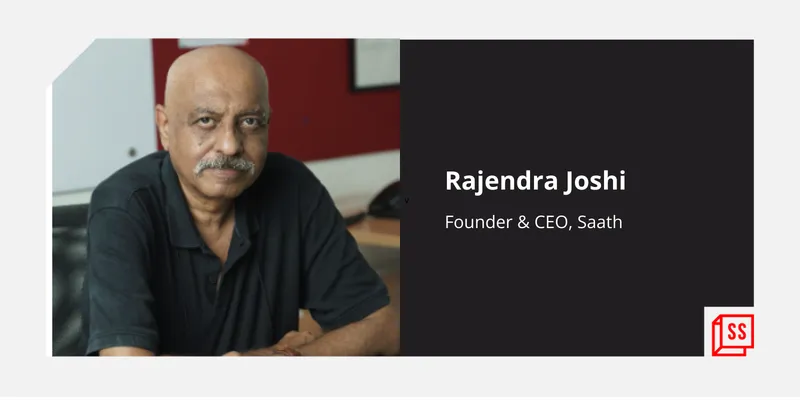
It collaborates with communities, especially the youth, to undertake upliftment programmes. Communities co-invest with Saath and with donors for programme implementation and scaling-up.
As of December 2021, the NGO claims that its platform has around 2,14,024 beneficiaries.
The organisation is planning to expand its Urmila Home Manager Programme, which provides training in various domains such as cooking, cleaning, baby-sitting, geriatric care etc, to other states.
It also plans to up scale microentrepreneurs through the ‘Business Gym’ app, and make it more accessible to the masses.
Rajendra Joshi, Founder and CEO, Saath, says,
“We envision inclusive societies. I believe cities will become smarter when there is equitable sharing of resources, inclusion of informal sector populations, and social cohesion.”
Saath’s Integrated Area Development Programme, which is operating in the Vatva area of Ahmedabad, aims to bring about a city-level network of institutions and individuals for the development of Vatva and surrounding area in the coming five years.
Edited by Teja Lele






